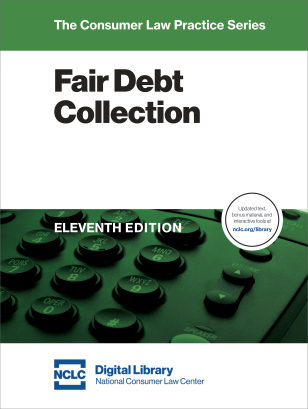In Henson v. Santander Consumer USA Inc., __ U.S. __, 2017 WL 2507342 (June 12, 2017), the Supreme Court issued a unanimous decision authored by Justice Gorsuch holding that Santander was not a debt collector under the Fair Debt Collection Practices Act’s (FDCPA’s) second definition of debt collector. This narrow opinion held that a debt buyer is not subject to the FDCPA as an entity regularly collecting debts “owed or due another,” leaving intact the alternative approach of showing that a debt buyer qualifies as a debt collector under the FDCPA because the “principal purpose” of its business is the collection of debts.
Facts
Plaintiffs originally obtained car loans from CitiFinancial Auto. When they defaulted, CitiFinancial repossessed the vehicles, sold them, and hired Santander as a servicer to collect the alleged deficiency balances. Plaintiffs were part of a class action against CitiFinancial Auto related to its repossession practices.
After preliminary approval of the class settlement agreement, whose relief included waiver of plaintiffs’ alleged deficiency balances, Santander purchased plaintiffs’ accounts as part of a $3.55 billion portfolio of loan receivables. Despite allegedly knowing about the waiver of deficiency balances included in the class settlement between plaintiffs and CitiFinancial Auto, Santander attempted to collect the alleged deficiency balances. Plaintiffs’ brought an FDCPA lawsuit alleging misrepresentation of the amount owed and authority to collect the debt.
Owed or Due Another
The FDCPA defines a debt collector (in part) as:
any person who uses any instrumentality of interstate commerce or the mails in any business the principal purpose of which is the collection of any debts, or who regularly collects or attempts to collect, directly or indirectly, debts owed or due or asserted to be owed or due another . . . . [15 U.S.C. 1692A(6)]
The question before the Supreme Court was whether Santander qualified as a debt collector under the second definition – in other words, whether Santander “regularly collects . . . debts owed or due . . . another.” Rejecting plaintiffs’ argument that “owed” encompasses debts previously “owed . . . another” based on both an analysis of grammar and the language in other sections of the statute, the Court held that a company collecting debts that it purchased is not a debt collector under the FDCPA’s second definition of debt collector because the debts are now owed to it rather than being “owed or due . . . another.”
Principal Purpose
The Supreme Court did not address the first definition of debt collector, noting that:
[T]he parties briefly allude to another statutory definition of the term “debt collector”—one that encompasses those engaged “in any business the principal purpose of which is the collection of any debts.” § 1692a(6). But the parties haven't much litigated that alternative definition and in granting certiorari we didn't agree to address it either. [Henson at *3]
The district court at 2014 WL 1806915 at *4 (D. Md. May 6, 2014) and the Fourth Circuit at 817 F.3d 131, 137 (4th Cir. 2016) had both summarily concluded that Santander was not a “principal purpose” debt collector. Santander claimed that its principal purpose was loan origination. [Henson at *7] As such, it is different from debt buyers that are primarily or exclusively engaged in the purchase and collection of defaulted debts.
Defaulted Debt
The Supreme Court also rejected the argument that because the FDCPA at 15 U.S.C. 1692a(6)(F)(iii) specifically excludes persons who collect non-defaulted debt from the definition of debt collector, the term debt collector must include those who regularly attempt to collect debts obtained after default. Whether or not the debt is in default is relevant to applying the exclusions from the debt collector definition in 15 U.S.C. § 1692a(6)(F)(iii), but the Supreme Court cautioned that "it doesn't necessarily follow that the definition [of debt collector] must include anyone who regularly collects debts acquired after default.” [Henson at *6]
Litigating FDCPA Claims Against Debt Buyers Post-Henson
Although the Supreme Court concluded that debt buyers are not debt collectors under the FDCPA’s second definition of a debt collector that “regularly collects . . . debts owed or due . . . another,” debt buyers can still fall under the FDCPA definition of debt collector if their “principal purpose . . . is the collection of any debts.”
These are separate and distinct definitions of debt collector. See Schlegel v. Wells Fargo Bank, N.A., 720 F.3d 1204, 1208 (9th Cir. 2013). An entity meeting either one of the two definitions qualifies as a debt collector. See Pollice v. Nat’l Tax Funding, L.P., 225 F.3d 379, 405 (3d Cir.2000).
Attorneys bringing FDCPA claims against debt buyers should clearly allege that debt collection is the principal purpose of the defendant’s business Attorneys may need to move to amend pre-Henson complaints against debt buyers if the complaint did not clearly allege principal purpose.
The complaint should also provide a factual basis to support the principal purpose allegation. See Schlegel v. Wells Fargo Bank, NA, 720 F.3d 1204, 1209 (9th Cir. 2013). In some cases it may be fair to allege in the complaint that debt collection is the debt buyer’s only business, which makes it indisputable that it is the debt buyer’s principal business. A Third Circuit decision holds that an admission by the defendant that it “exists solely for the purpose of holding claims for delinquent taxes and municipal obligations” showed that its principal purpose was the collection of debts. Pollice v. Nat’l Tax Funding, L.P., 225 F.3d 379, 404 n.27 (3d Cir.2000). On the other hand, at least one court has held that simply alleging that debt collection makes up “some part” of the defendant’s business is insufficient to state a claim under principal purpose. Schlegel v. Wells Fargo Bank, NA, 720 F.3d 1204, 1209 (9th Cir. 2013).
For more on the principal purpose definition of debt collector, see NCLC’s Fair Debt Collection § 4.2.2.
Of course, FDCPA actions can be brought against third parties that the debt buyer hires to collect a debt. Similarly, a collection attorney can be liable under the FDCPA for its FDCPA violations while representing a debt buyer. See id. § 4.2.8.
State Causes of Action Against Debt Buyers
Debt buyers may be subject to state debt collection statutes. Most states have debt collection statutes, and in about half the states the debt collection statute includes an explicit private cause of action. See id. §10.2 (discussing state debt collection statutes generally) and Appx. D (summarizing state debt collection statutes). Many of these statutes explicitly apply to creditors collecting their own debts, so a debt buyer would not be able to argue that it was excluded because it had purchased the debt, and some have special provisions regarding debt buyers. In other states the general scope language may be broad enough to encompass these entities. See id. § 10.2.3.3.1.
State laws prohibiting unfair and deceptive acts and practices (UDAP) statutes are another possibility. Most states have interpreted their UDAP statutes to apply to debt collection activity. See id. §10.3.3.6 (state-by-state survey of UDAP statute’s coverage of debt collection). Some UDAP statutes, however, exclude certain types of transactions, and may not apply to collection of debts arising from those transactions. For example, some UDAP statutes exclude banks (see NCLC’s Unfair and Deceptive Acts and Practices § 2.2.1), and courts in those states may hold that the UDAP statute is also inapplicable to collection of debts arising from transactions with banks. Where applicable, UDAP statutes generally offer strong remedies, often including statutory and multiple damages and usually including attorney fees. See id. Ch. 12.


